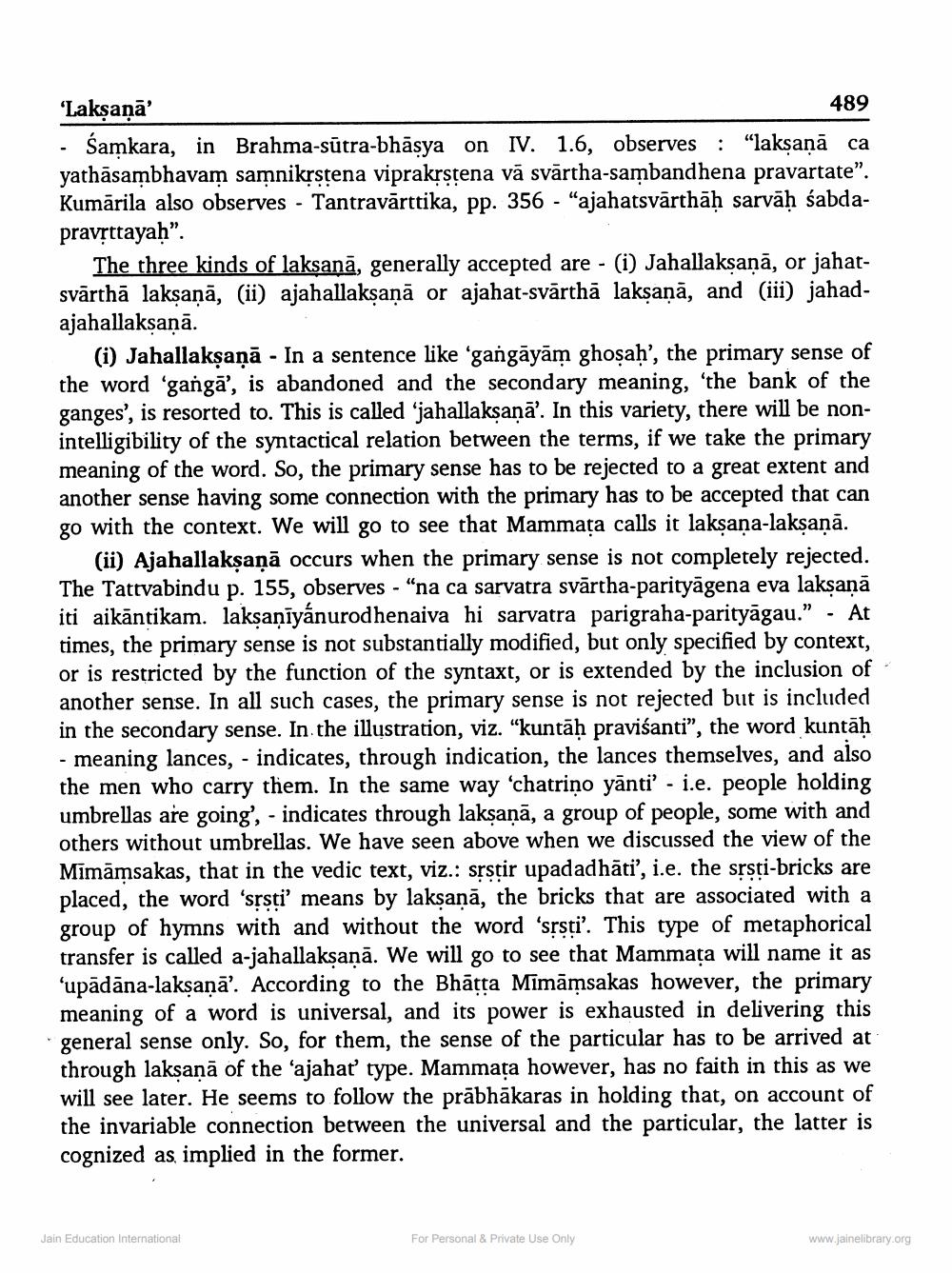________________
'Laksanā'
489 • Šamkara, in Brahma-sūtra-bhāsya on IV. 1.6, observes : “laksaņā ca yathāsambhavam samnikrstena viprakrstena vā svārtha-sambandhena pravartate". Kumārila also observes - Tantravārttika, pp. 356 - "ajahatsvārthāh sarvāh sabdapravṛttayah”.
The three kinds of laksanā, generally accepted are - (i) Jahallaksanā, or jahatsvārthā laksaņā, (ii) ajahallaksaņā or ajahat-svārthā laksaņā, and (iii) jahadajahallaksaņā.
(i) Jahallaksanā - In a sentence like 'gangāyām ghosah', the primary sense of the word 'gangā', is abandoned and the secondary meaning, 'the bank of the ganges', is resorted to. This is called 'jahallaksaņā”. In this variety, there will be nonintelligibility of the syntactical relation between the terms, if we take the primary meaning of the word. So, the primary sense has to be rejected to a great extent and another sense having some connection with the primary has to be accepted that can go with the context. We will go to see that Mammața calls it laksana-laksaņā.
(ii) Ajahallakṣaņā occurs when the primary sense is not completely rejected. The Tatrvabindu p. 155, observes - "na ca sarvatra svārtha-parityāgena eva laksanā iti aikāntikam. laksaniyánurodhenaiva hi sarvatra parigraha-parityāgau.” times, the primary sense is not substantially modified, but only specified by context, or is restricted by the function of the syntaxt, or is extended by the inclusion of another sense. In all such cases, the primary sense is not rejected but is included in the secondary sense. In the illustration, viz. “kuntāḥ praviśanti”, the word kuntāḥ - meaning lances, - indicates, through indication, the lances themselves, and also the men who carry them. In the same way 'chatriņo yānti' - i.e. people holding umbrellas are going', - indicates through laksaņā, a group of people, some with and others without umbrellas. We have seen above when we discussed the view of the Mimāmsakas, that in the vedic text, viz.: srstir upadadhāti', i.e. the srsti-bricks are placed, the word 'srsti' means by laksanā, the bricks that are associated with a group of hymns with and without the word 'srsti'. This type of metaphorical transfer is called a-jahallaksaņā. We will go to see that Mammața will name it as ‘upādāna-laksaņā”. According to the Bhātta Mimāmsakas however, the primary meaning of a word is universal, and its power is exhausted in delivering this general sense only. So, for them, the sense of the particular has to be arrived at through laksaņā of the 'ajahat type. Mammața however, has no faith in this as we will see later. He seems to follow the prābhākaras in holding that, on account of the invariable connection between the universal and the particular, the latter is cognized as implied in the former.
Jain Education International
For Personal & Private Use Only
www.jainelibrary.org




